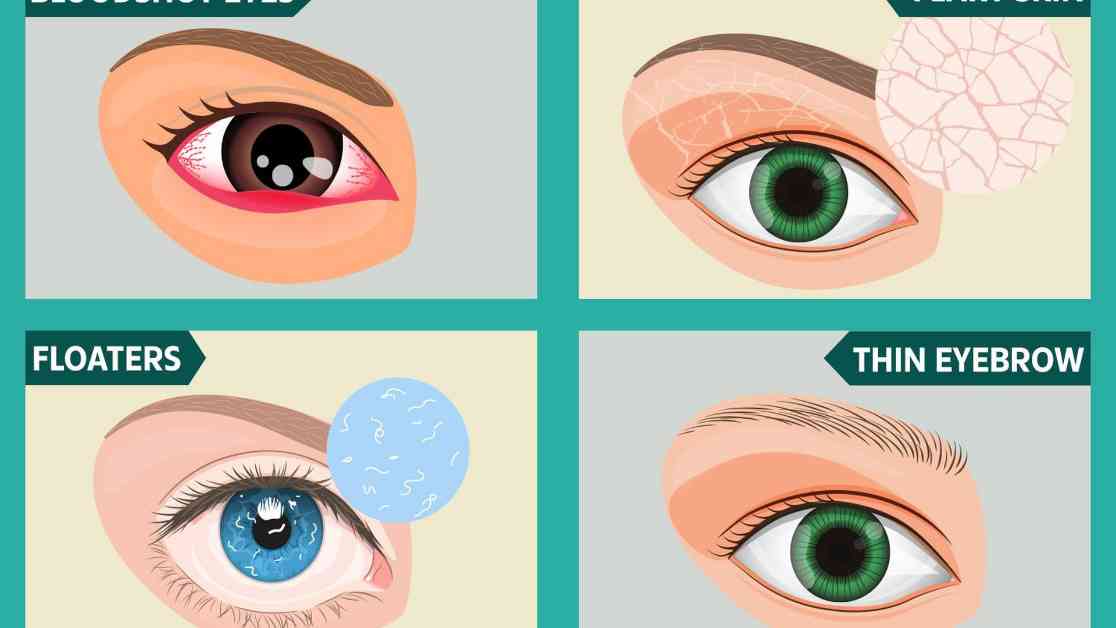Our eyes are important organs that can reveal a lot about our overall health. Changes in our eyesight, as well as our eyebrows, can signal underlying health issues that shouldn’t be ignored.
Floaters in the eyes, which are small, shadowy spots in our field of vision, can be common as we age. However, larger or more frequent floaters could indicate serious conditions like retinal tear or detachment, especially for diabetic individuals. Regular eye screenings can help catch diabetic retinopathy early.
Thinning eyebrows may be a sign of hormonal imbalances, nutrient deficiencies, chronic stress, or aging. Iron, biotin, and vitamin-rich foods can help promote eyebrow health, along with supplements if needed.
Flickering eyelids are usually harmless and can be caused by stress, tiredness, or excessive caffeine intake. However, persistent flickering may warrant an eye test to rule out underlying issues.
Flaky skin around the eyebrows can indicate conditions like seborrheic dermatitis, dry skin, allergies, or nutritional deficiencies. Proper skincare and avoiding harsh products can help manage symptoms.
Sticky eyelids may be a sign of dry eyes or bacterial infections, which may require different treatments. Eye drops, heat masks, and lid cleaning wipes can help with dry eyes, while antibiotic drops may be necessary for infections.
White spots on the cornea and conjunctiva, known as pinguecula or pterygium, are harmless deposits caused by UV damage. Sunglasses with UV protection can prevent these spots from forming.
Blurry vision may require vision correction or indicate serious eye conditions like cataracts, glaucoma, or macular degeneration. Sudden changes in vision should be evaluated promptly.
Bloodshot eyes can be due to dryness, allergies, or more serious conditions that require urgent attention if accompanied by pain, vision loss, or light sensitivity.
Spots around the temple and brow line may be hormonal or caused by acne mechanica from friction or pressure. Proper skincare and avoiding triggers can help manage these spots.
Regular eye tests are recommended every two years to monitor eye health and detect underlying health conditions. While eye tests may come at a cost, certain individuals are eligible for free NHS eye tests in England, Wales, and Northern Ireland based on specific criteria.
Taking care of your eyes and eyebrows is essential for overall health and well-being. Being aware of warning signs and seeking timely help can prevent serious complications and maintain good eye health.

